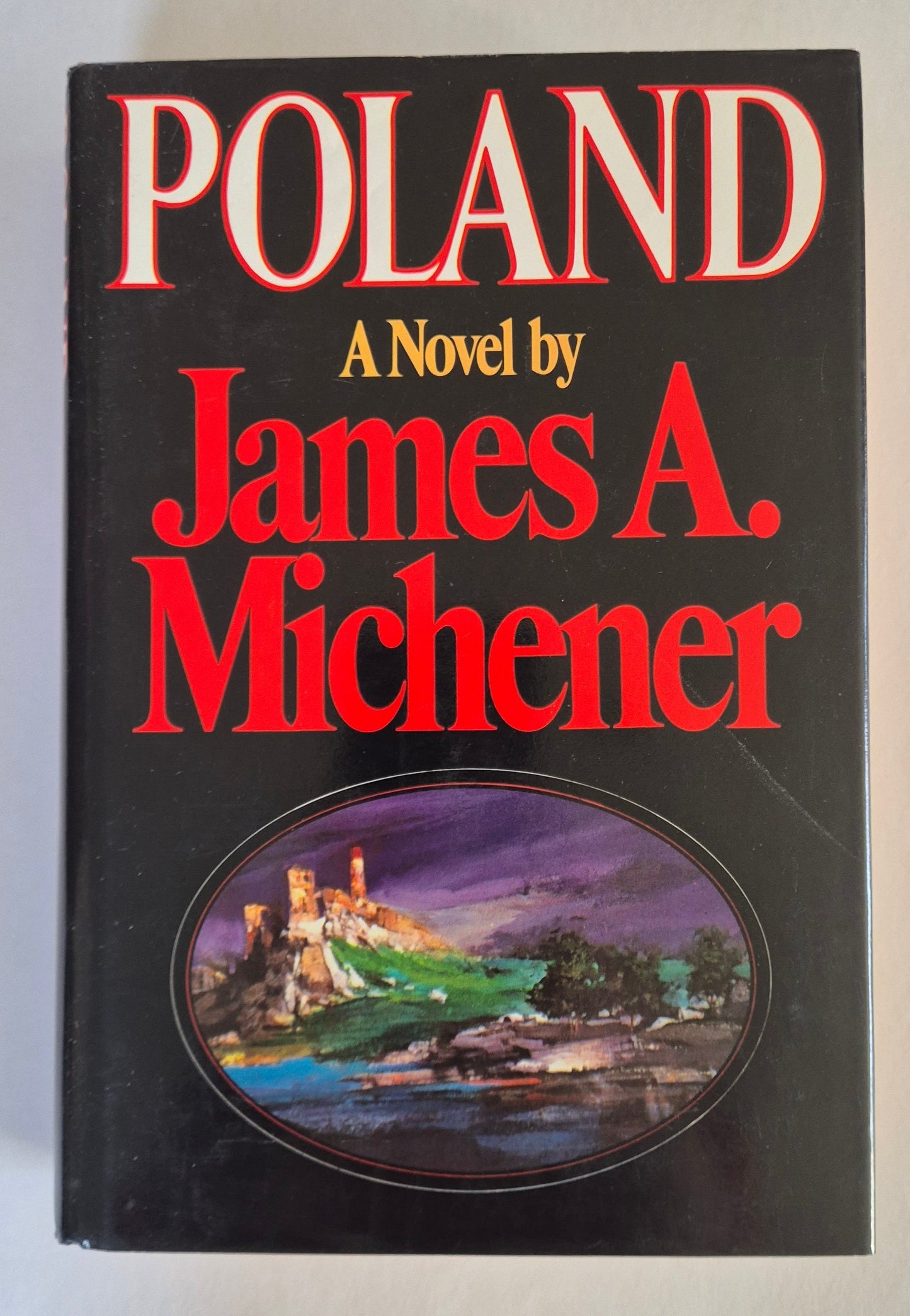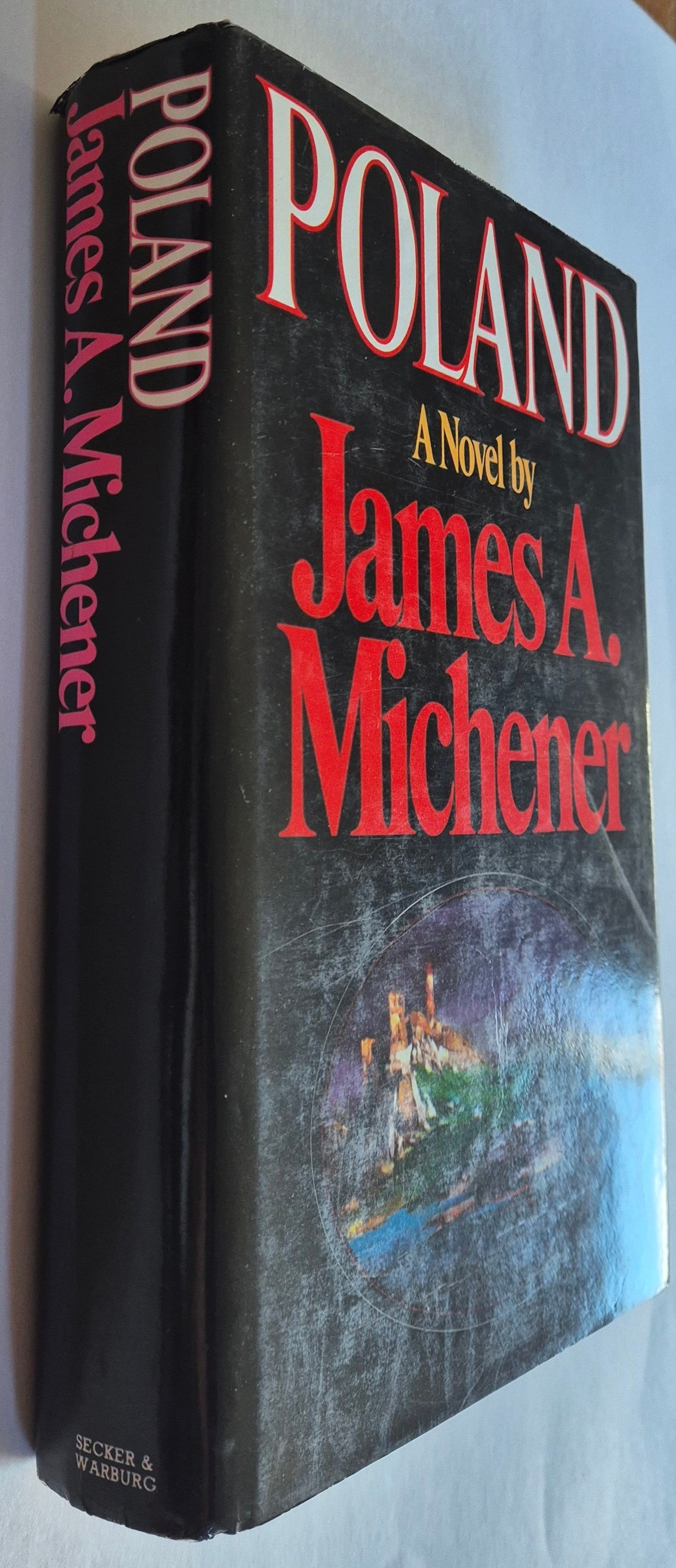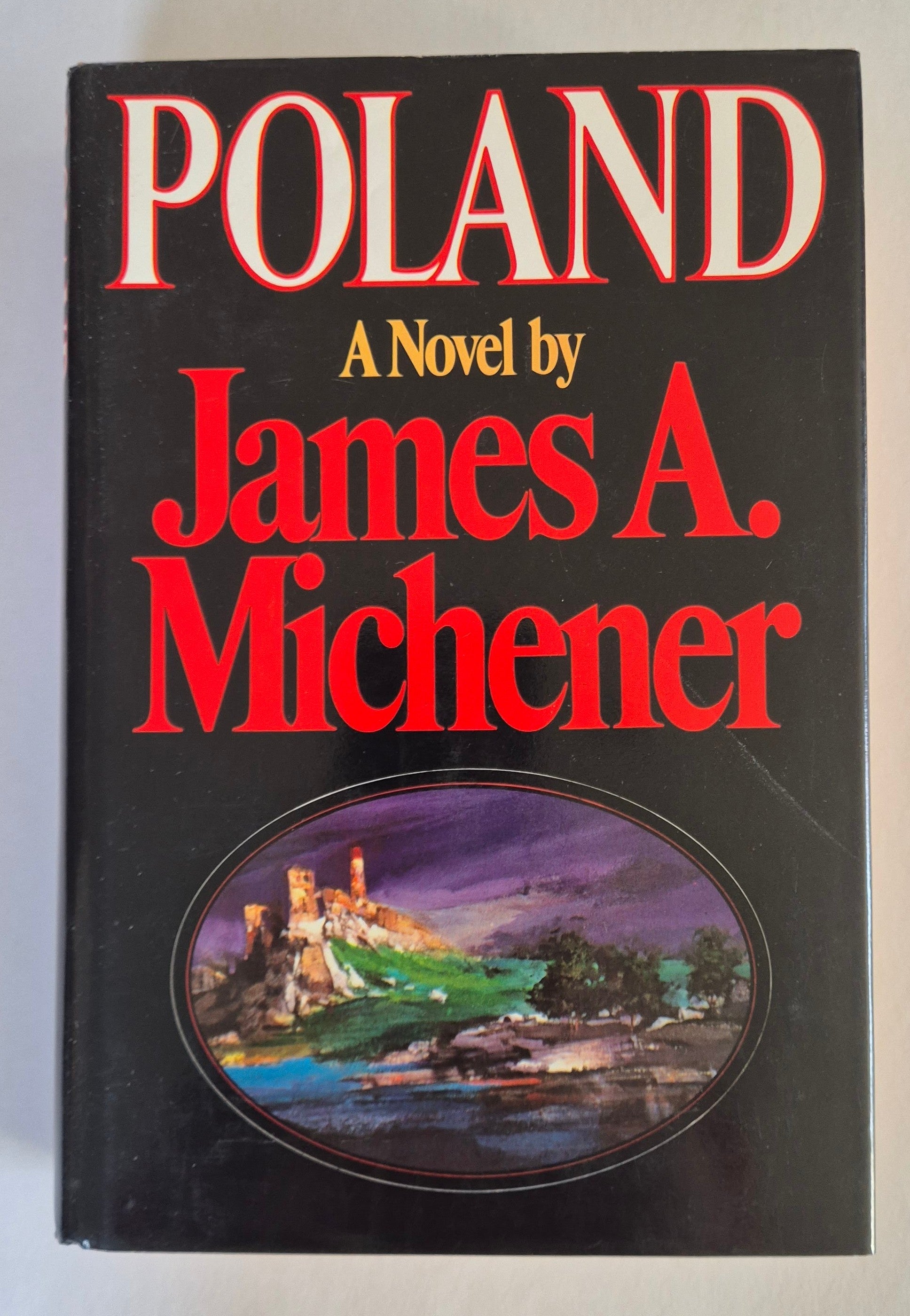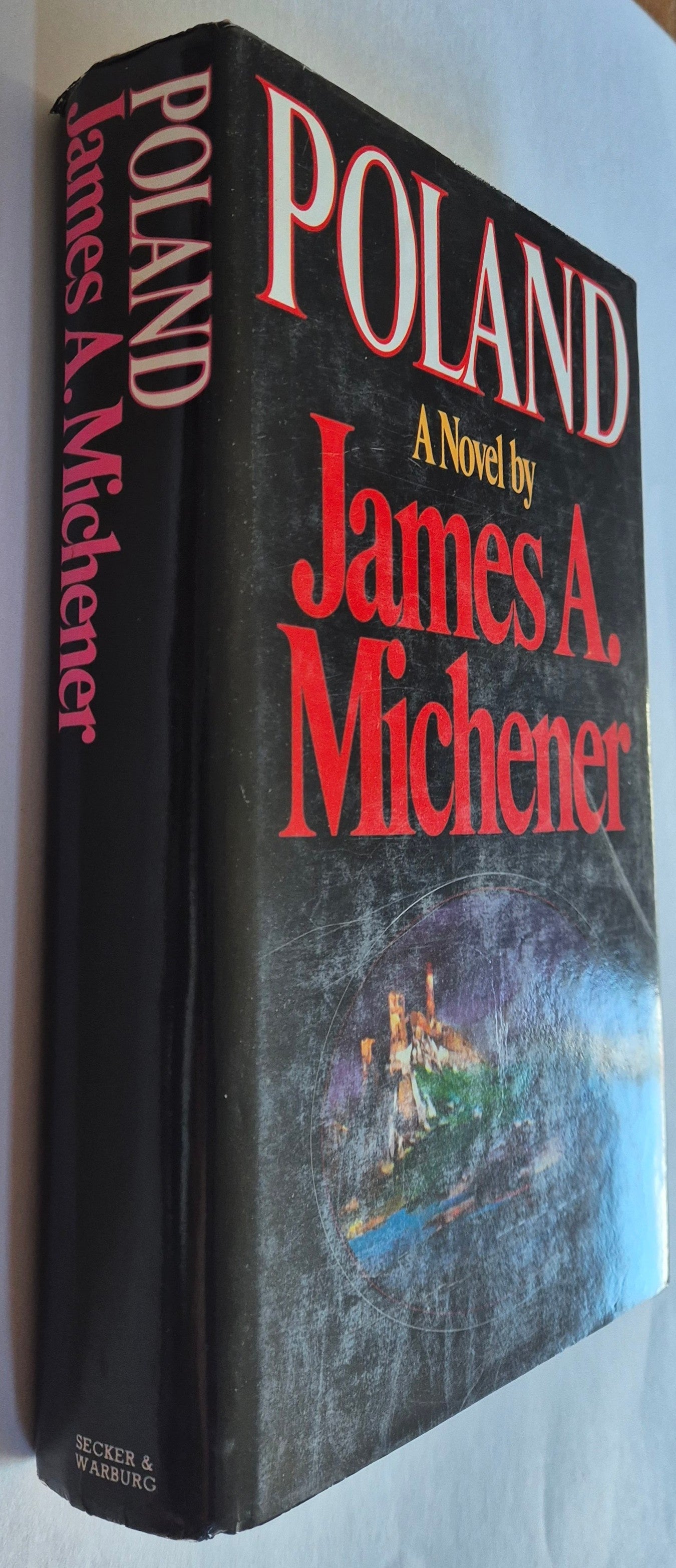Michener, James A.
Poland by James A. Michener
Poland by James A. Michener
Couldn't load pickup availability
The tense opening chapter of this forceful and timely novel is set in the autumn of 1981 in Bukowo, a small village on the Vistula River in south-east Poland. Here an important meeting has been called for a group of militant farmers, led by Janko Buk, to present their grievances and demands to the Minister of Agriculture, Szymon Bukowski, and other Communist officials. When the farmers insist that the local Catholic bishop join the discussion, Warsaw orders a four-week adjournment. The final chapter is a continuation of the first.
The main body of the book, places between these two contemporary scenes, covers eight important periods of Polish history, from the thirteenth century to the present day - a succession of heroic efforts, sometimes victorious, often tragic, to repel invaders: Tartars, Germans, Swedes, Turks, Russians. By the end of the eighteenth century Poland has disappeared from the map of Europe, having been completely absorbed by Germany, Austria and Russia, a condition that prevailed until the end of the First World War. By 1920 the newly independent nation was strong enough to turn back a Soviet drive which was intended to conquer all of Europe, but two decades of freedom came to an appalling end in September 1939 with the Nazi and Soviet occupation, surpassing in brutality and viciousness even what had been experienced in the Polish past - the atrocities committed in places like Lublin and Majdanek are heartbreakingly portrayed.
Within this historical background, Mr. Michener's meticulously planned and splendidly executed novel combines fact and fiction in the manner for which he is famous all over the world. The three families whose descendants will dominate the story are introduced as they resist the Tartar terror of the year 1214: Krzysztof of Gorka Castle and his henchman Zygmunt, progenitors, respectively, of the wealthy Counts Lubonski of the nobility and the Bukowsis of the gentry. Subservient to these is the peasant Jan of the Forest, whose lineage will be known by the name Buk. These are the author's invention, but they faithfully represent the principal layers of the rigidly stratified society of Poland, in which everyone knew his position. Other colourful and haughty characters - of which some are real, some fictitious - bear names long renowned in Poland: Zamoyski, Ossolinski, Radziwill, Lubomirski, Minszech, Czartoryski. Lubonskis marry members of these families; Bukowskis meet with them, but Buks do not, except as servants.
Though the Poles were doomed to live in the battleground of eastern Europe and to fight in many historic conflicts, they were as robust and zestful in the pursuit of pleasure and grandeur as they were valiant in warfare. This vivid story shows them in their enjoyment of music, of dancing and feasting, of romance and intrigue, of the glamour of Warsaw and Vienna. It also suggest reasons - indefensible borders and ruthless neighbours, political and social intransigence - why such an admirable and talented people have seldom been able to achieve and sustain the freedom for which they have always so deeply yearned.



